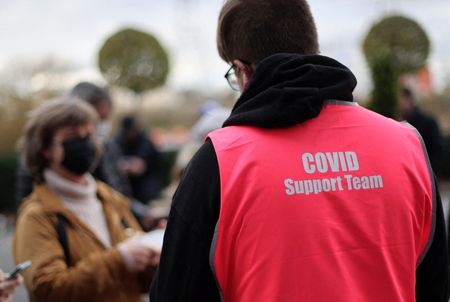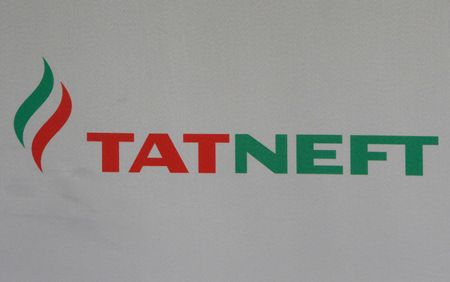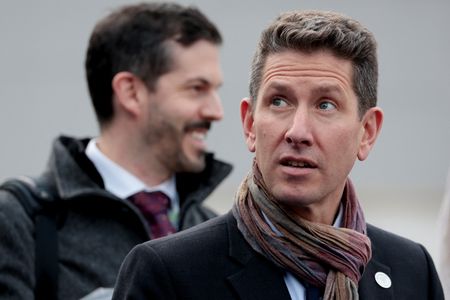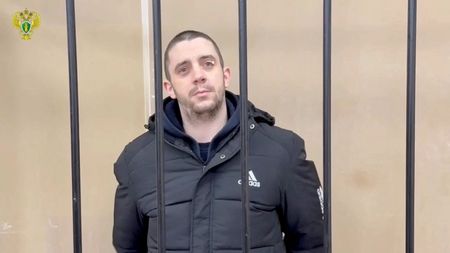By Martyn Herman
LONDON (Reuters) -Some Premier League clubs could take into account the vaccine status of potential signings when they look to bolster their squads in the January transfer window as rising COVID-19 cases raise fears of a rash of postponed games.
Aston Villa boss Steven Gerrard and his Crystal Palace counterpart Patrick Vieira both said that vaccine status might be a consideration in the decision-making process.
Premier League clubs will have to conduct daily lateral flow tests as part of new measures agreed on Tuesday, a day after the league announced a record 42 cases https://www.reuters.com/lifestyle/sports/premier-league-has-record-42-positive-covid-19-cases-past-week-2021-12-13 of COVID-19 among players and staff at clubs over the past week.
Players and club staff will also have to take a PCR test twice a week, which was the case last season, before it was changed to lateral flow tests in the summer.
Gerrard, whose side also have had players and staff test positive this week, told British media on Monday that Villa’s thorough recruitment process meant vaccine status could be considered when they speak to potential recruits.
“We look at everything.
So I’m sure it will come up,” said Gerrard, whose side visit Norwich City later on Tuesday.
“But we’ll obviously make decisions as and when we decide a certain person is the one who could come in and make us better.
“But I don’t think it’s right for me to comment on if I would or wouldn’t in that situation.
But it would certainly come into conversations in the background.”
Palace manager Vieira said clubs needed to find ‘solutions’ and that the prospect of having a non-vaccinated player missing for 10 days because of COVID-19 isolation rules, could be a consideration in new signings.
“But I don’t think that would be the final call on whether to sign a player or not,” he told reporters on Tuesday.
England’s top-flight is in the midst of its busiest time of the season, with teams involved in the League Cup playing at least twice a week until the first week of January and further cancellations could leave an unwelcome fixture pile-up.
GAMES POSTPONED
Manchester United’s match against Brentford was the second to be postponed this season due to COVID-19 after Tottenham Hotspur’s game at Brighton & Hove Albion over the weekend was called off.
Tottenham’s outbreak meant their UEFA Conference League clash at home to Stade Rennais last week was also called off.
Leicester City, Brighton, Norwich City and Villa have also reported cases as the new Omicron variant takes hold in Britain.
Clubs have been enjoying full stadiums again this season after playing virtually the whole of last term and part of the campaign before that in front of empty or restricted capacity stands following the start of the pandemic in March 2020.
The festive period is traditionally a soccer feast for fans in Britain, with broadcaster Sky Sports trailing its coverage with the slogan “Christmas is for Football”.
But rising COVID-19 infections are threatening to put a dampener on the hectic holiday programme, raising fears of a return to restricted attendances or even empty stadiums as seen in Germany and the Netherlands.
From Wednesday, fans will need to show proof of double vaccination under England’s “Plan B” of measures to slow the spread of the Omicron variant.
The Premier League, desperate to avoid a flurry of postponements, has ramped up its COVID-19 requirements for clubs, including daily testing, face coverings to be worn inside and stricter social distancing.
British Prime Minister Boris Johnson has pledged that all adults will be offered a vaccine booster by the end of the month as concerns grow over the spread of Omicron.
Professional football has lagged behind in the take-up of COVOD-19 vaccines, with the Premier League releasing figures in October showing that 68% of its players were double-jabbed.
Addressing the situation in October, England manager Gareth Southgate said some young players were “more open to conspiracy theories” about vaccines.
(Reporting by Shrivathsa Sridhar, Rohith Nair and Manasi Pathak in Bengaluru, Martyn Herman in London; Editing by Peter Rutherford, Alex Richardson and Toby Davis)









